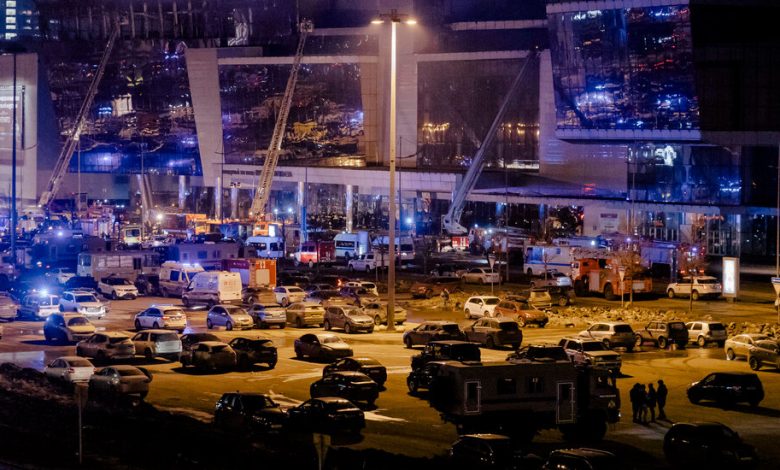Here’s What We Know About the Moscow Concert Hall Attack

At least 115 people were killed and more than 140 injured Friday night in an attack at a popular concert venue near Moscow, the deadliest act of terrorism in the Russian capital in more than a decade.
A branch of the Islamic State claimed responsibility for the attack; American officials, too, have attributed it to ISIS-K, a branch of the group active in Iran and Afghanistan. Russian officials have not commented on the claim. The authorities have detained at least 11 people, including all four they say were directly involved, but have not identified the assailants or their motives.
Here’s a closer look at the attack.
What happened?
The gunmen entered the Crocus City Hall building, one of the biggest entertainment complexes in the Russian capital, with capacity of more than 6,000, shortly before a sold-out rock concert was scheduled to start. Armed with automatic rifles, they began shooting.
Using explosives and flammable liquids, Russian investigators said, they set the building ablaze, causing chaos as people began to run. The fire quickly engulfed more than a third of the building, spreading smoke and causing parts of the roof to collapse. Russia’s emergency service posted a video and pictures from after the fire showing charred seating and firefighters working to remove debris.
Russian law enforcement said that people had died from gunshot wounds and poisoning from the smoke. Russia’s emergency service said that many of those injured had burns.
At least three helicopters were dispatched to extinguish the fire or to try to rescue people from the roof. The firefighters were only able to contain the fire early on Saturday; the emergency service said it was mostly extinguished by 5 a.m.
Where are the assailants?
Attackers were able to flee the scene. Early on Saturday, the head of Russia’s top security agency, the F.S.B., said that 11 people had been detained in the connection to the attack, including “all four terrorists directly involved.”
There were signs that Russia would try to pin blame on Ukraine, despite the claim of responsibility by the Islamic State. The F.S.B. said in a statement that the attack had been carefully planned and that the terrorists had tried to flee toward Ukraine.
A Russian lawmaker had said earlier that two terrorism suspects had been detained in the Bryansk region, southwest of Moscow.
How are Russians responding?
President Vladimir V. Putin, who claimed victory in a presidential election on Sunday, made no immediate direct statement about the attack. The Kremlin said that the Russian president had spoken to his Belarusian counterpart, Aleksandr Lukashenko, on Saturday, and that the two allies “confirmed their readiness to cooperate in the fight against terrorism.” A deputy prime minister, Tatyana Golikova, said Mr. Putin had expressed hopes for the recovery of the injured and gratitude to the doctors treating them.
The attack has punctured the sense of relative safety for Muscovites over the past decade, bringing back memories of attacks that shadowed life in the Russian capital in the 2000s.